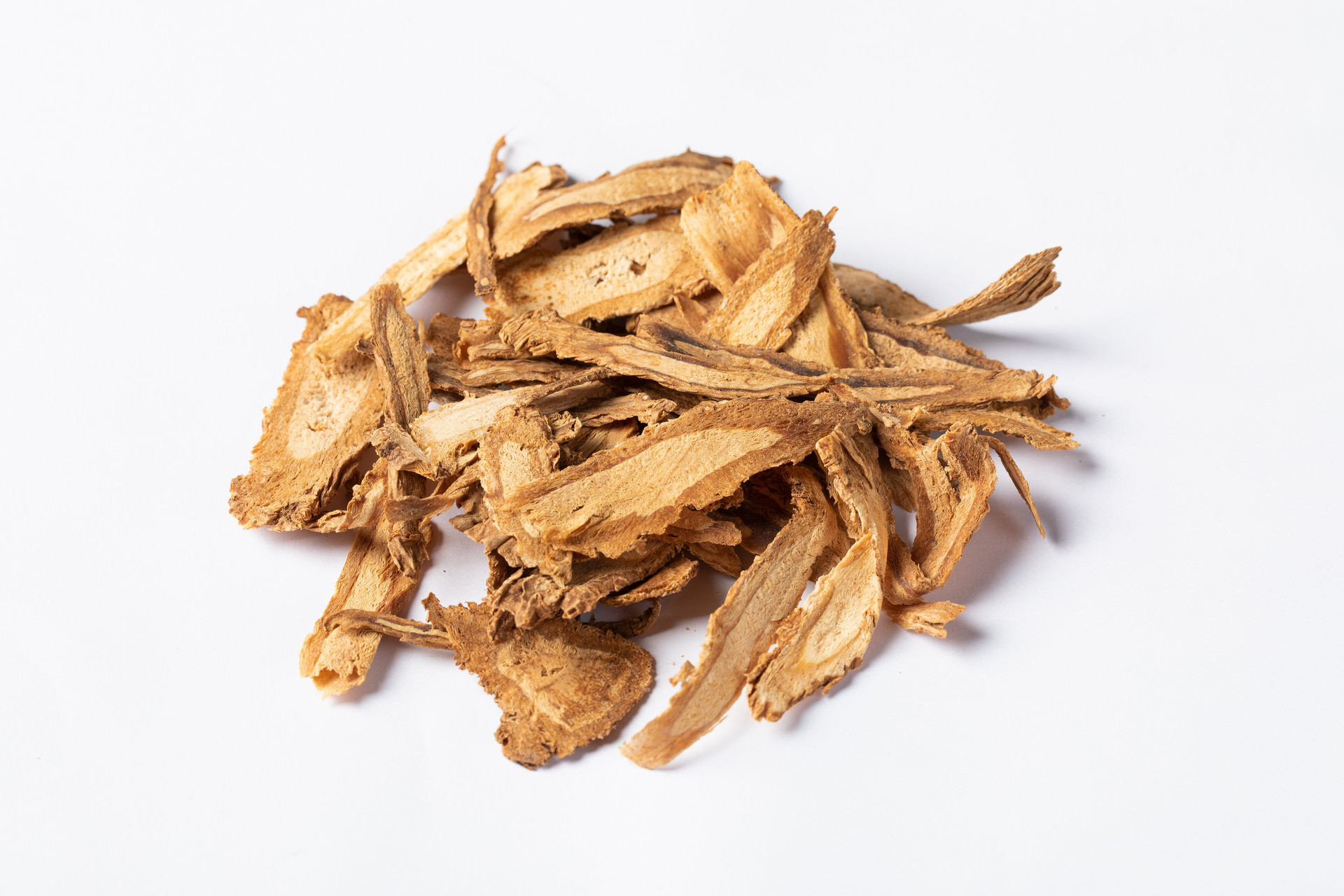What are the benefits and disadvantages of drinking soy milk
March 28, 2023
Soybean milk and fuel strips are like fried chicken with beer, many people like the breakfast with the way, drink a cup of hot soybean milk in the morning can be warm to the heart. In the spring and autumn, drink soy milk, harmonize the yin and yang, nourish the yin and moisten the dry; summer drink soy milk, quench thirst; winter drink soy milk, dispel the cold and warm stomach, nourish the tonic. So what are the benefits of drinking soy milk? Let the autumn water to give you an inventory of it.
Soybean nutrition
It contains 20% fat, including stearic acid, palmitic acid, oleic acid, linoleic acid and linolenic acid, especially unsaturated fatty acids (oleic acid, linoleic acid) content of up to 70% to 80%;
In addition, soybeans are also rich in mineral macronutrients such as phosphorus, potassium, calcium, magnesium, and trace elements such as iron, fierce, zinc, selenium, etc. There are 14 kinds of vitamins, including beta carotene, vitamin B1, vitamin B2, vitamin E, vitamin H, and niacin more.
It contains unique bioactive substances, such as soy isoflavones, saponins, protease inhibitors, phytic acid, phytosterols, etc., which are extremely beneficial to the human body.
Soybeans contain 25% to 30% carbohydrates. It is mainly hydrosugar, cottonseed sugar, fructose, sucrose, etc. These sugars, also known as soybean oligosaccharides, have high nutritional value and are value-added factors for beneficial flora in the human intestine. In recent years, it has been widely used in the food industry in the United States and Japan.
Based on the rich nutritional composition of soybeans above and the fact that soymilk is a mixture of ground soybeans and water, drinking soymilk has the following benefits.
Soy protein health function
Benefit: Lower cholesterol
Dry beans contain 40% of high quality protein, soy protein contains a comprehensive range of amino acids and is arguably the best source of protein; soy protein in soybeans allows drinking soy milk with the following health functions.
The effect of soy was discovered by American scientists in 1977 and has also been confirmed in a series of experiments since then as a cholesterol-lowering effect of soy. People with very high cholesterol levels in their bodies can achieve significant results simply by consuming 25 grams of soy protein daily. Since high plasma cholesterol is a major contributor to heart disease and atherosclerosis, soy protein has an important role in preventing cardiovascular disease and ensuring heart health.
Prevention of urinary calcium loss
Soy protein is effective in preventing calcium deficiency in the body, contributing to bone health and reducing the risk of osteoporosis. Sulfur-containing amino acids in animal proteins accelerate urinary calcium loss and lead to negative calcium balance in the muscle. Soybeans are low in sulfur-containing amino acids and are among all high-protein foods that cause reduced urinary calcium loss. Some animal experiments have demonstrated that consumption of soy protein can stop bone loss, thereby reducing the risk of osteoporosis.
Promotes kidney function
In tests on animals with kidney disease, it was found that the group that consumed soy protein food had a higher survival rate and less kidney damage. Studies have shown that the consumption of soy protein in patients with kidney disease can have the same effect as restricting protein use. This shows that soy protein can be a fairly safe source of protein for patients with kidney disease.
Improved efficiency
Studies have shown that increasing the amount of soy protein in food not only increases the excitatory and inhibitory functions of the cerebral cortex and improves learning and productivity, but also prevents the deep development of frustration and depression.
Improve anemia
Soy protein is rich in calcium, phosphorus, iron and other mineral elements and vitamins. On average, soy contains 17 mg of iron per 100 grams, much higher than the iron content in milk, making it an ideal food for comprehensive prevention and treatment of anemia.
Prevention of obesity
Japanese scientists conducted a lot of experiments on whether soy protein can prevent obesity, and found that: soy protein has a strong role in reducing triglycerides in the blood, soy protein can also enhance calorie consumption, reduce fat, in addition, soy protein can also increase the blood thyroid hormone, reduce insulin levels and thus promote energy metabolism, in order to achieve the purpose of preventing obesity.
Health Benefits of Soy Fats
The Food and Nutrition Board of the National Academy of Sciences has officially recognized choline as an essential nutrient, and soy phospholipids are the best source of choline, which also has the advantage of being purely natural and having high bioavailability compared to other choline sources. In addition, phospholipids have health effects such as strengthening metabolism, promoting muscle health and intellectual development, and thus have been recognized worldwide as the "soy phospholipid health method" - the modern health revolution.
Disease prevention
Soybeans are high in unsaturated fatty acids. Consumption of unsaturated fats not only reduces total cholesterol levels, but also increases the ratio of HDL and LDL cholesterol, which can prevent obesity in time without changing the total fat intake. Linoleic acid, linolenic acid and other polyunsaturated fatty acids can inhibit the clotting and accumulation of blood clots in the heart and brain vessels, thus helping to prevent strokes and cardiovascular diseases. In addition, linoleic acid can also relieve tension and regulate emotions.
Skin whitening
The linoleic acid contained in soy milk inhibits the enzymes needed to synthesize melanin, thus inhibiting the formation of melanin and making cells whiter.
Health functions of soybean oligosaccharides
Soybean oligosaccharide is the general name of soluble carbohydrates contained in soybeans, whose main components are hydrosugar, sucrose and cottonseed sugar. Soybean oligosaccharide products are mainly available in the form of syrup, granules and powder. Soybean oligosaccharides have the following physiological functions.
Hard to digest, low energy
Because the human gastrointestinal enzyme system does not hydrolyze hydrosugar and cottonseed, the hydrosugar and cottonseed contained in soybean oligosaccharide is difficult to be digested and absorbed by the body, therefore, it provides very low or no energy value, which can maximize the satisfaction of those who love sweets and are worried about gaining weight, and can also be consumed by diabetics and obese patients.
Activate the probiotics in the intestinal tract
Drink soy milk often, the oligosaccharides in soy milk can activate the intestinal tract of bifidobacteria to promote growth and reproduction, bifidobacteria are beneficial bacteria in the human intestinal tract, the number of bacteria gradually decreases with age, the number of bifidobacteria in the intestinal tract has become one of the indicators of the very bright human health or not. With the rapid development of medicine, broad-spectrum powerful antibiotics are widely used in the treatment of various diseases, so that the normal balance of flora in the human intestine received different degrees of damage. Therefore, it is necessary to purposely increase the number of beneficial bacteria in the intestine.
Inhibit the production of intestinal spoilage
Spoilage bacteria (such as Clostridium perfringens and E. coli) in the human intestine convert amino acids into spoilage products such as ammonia and indole. Consuming 10 grams of soy oligosaccharides daily significantly reduces spoilage products and also inhibits enzymes that are associated with the production of carcinogens in the intestine.
Prevention and treatment of constipation and diarrhea
The human body produces a large amount of indigestible oligosaccharides in the process of metabolism, and when people lose their temper and accumulate too much oligosaccharides, symptoms such as bloating, constipation and diarrhea will occur. After the intake of functional oligosaccharides, bifidobacteria proliferating in the intestinal tract can publish oligosaccharides and transform them into a large number of short-chain fatty acids, which can stimulate intestinal peristalsis, increase the moistness of stool and maintain a certain degree of permeability, thus regulating the intestinal environment in both directions and preventing constipation and diarrhea.
Prevention of dental caries
Dental caries is caused by oral microorganisms, especially Streptococcus mutans erosion. Functional oligosaccharides cannot be used by oral microorganisms, which helps to maintain oral hygiene and prevent dental caries.
Health functions of soybean dietary fiber
Soybean dietary fiber is a natural intestinal scavenger. During the processing of soy milk, most of the dietary fiber is retained in the soybean residue, so soybean residue, a by-product of soybean processing, is a food rich in dietary fiber. The water-soluble fiber in soybean residue has good emulsification and thickening properties, which can improve the water-holding and conformability of food. Soybean dietary fiber has the following health functions.
Slowing down the degeneration of dental function
Dietary fiber can enhance the chewing function of teeth by prolonging oral mastication, thus promoting sound dental development and slowing down the deterioration of adult dental function.
Aids in food digestion
Dietary fiber can increase the time of chewing food in the mouth, thus promoting the secretion of intestinal digestive enzymes and facilitating the digestion of food.
Prevent colon cancer
Colon cancer is caused by the action of certain irritants or poisons such as nitrosamines phenols and ammonia. When these toxic substances stay in the colon for too long, they will have toxic effects on the intestinal wall. Dietary fiber, with its strong water absorption, increases the volume of feces and shortens the residence time of feces in the colon. The large volume of feces also dilutes toxic substances and reduces the concentration of carcinogenic factors, thus helping to prevent colon cancer.
Preventing and treating constipation
Dietary fiber is highly absorbent, increasing the volume of stool and softening it, thus preventing habitual constipation and some corresponding diseases. Thus, dietary fiber can be said to be a real "cleaner" in the intestinal tract.
Prevention of gallstone formation
Most gallstones are caused by excessive amounts of cholesterol in the bile, and dietary fiber increases the excretion of cholesterol in the intestine and reduces the concentration of bile and serum cholesterol, which subsequently reduces the prevalence of gallstone disease.
Prevention of breast cancer
Modern medical research has shown that the incidence of breast cancer is significantly reduced in people with higher dietary fiber intake.
Prevention of diabetes
Diabetes mellitus is a common endocrine metabolic disease caused by relative or absolute insulin deficiency in the body. Dietary fiber plays an important role in maintaining blood glucose homeostasis, and increasing the fiber content in food can effectively reduce the concentration of postprandial backlog blood glucose.
Weight control and prevention of obesity
Dietary fiber can make the volume of the stomach contents to produce a sense of satiety, in order to control the intake of the three major heat-producing nutrients of protein, fat and carbohydrates, thus playing a role in weight control and prevention of obesity.
Physiological effects of soy isoflavones
Soy isoflavones are a class of secondary metabolites formed during the growth of soybeans. Their structure is similar to that of estrogen, and they have strong biological activity, which can improve beauty and prevent breast cancer, cardiovascular disease, prostate cancer and osteoporosis.
Effects of soy lecithin
Phospholipids make up 20% to 30% of the human brain, and soybeans are rich in phospholipids. Soy lecithin provides essential nutrients to new cells, enhances the transmission of information between neurons and improves brain function. In addition, lecithin can lower cholesterol levels, protect the liver, enhance antioxidant capacity and help with weight loss.
Physiological functions of soy saponins
Saponins contained in soybeans were once considered anti-nutritional factors because high concentrations of saponins can cause red blood cells to rupture, which is detrimental to health. However, with further research on the nutritional value of saponins, the following physiological functions of soy saponins were discovered.
slowing down the aging process
Soy saponins can slow down the aging process of cells and prolong life; through dietary studies of middle-aged and elderly people, it was found that the body's aging indicators can be significantly improved by the daily intake of appropriate amounts of saponins.
Enhance the body's immune system
Soy saponins have a significant immune enhancing effect.
Lowering blood sugar
Studies on rats with diabetes showed that soy saponins not only lowered blood glucose levels, but also increased insulin levels in rats.
Anti-radiation and tumor
Soy saponins have a significant inhibitory effect on the genes of tumor cells cultured in vitro, and soy saponins can also improve immune function in mice. A certain dose of soy saponin has a protective effect on indirect gene damage in mice exposed to radiation, and its mechanism of action may be due to the ability of soy saponin to reduce the production of free radicals and accelerate their metabolism.
Anticoagulant, antithrombotic, hypolipidemic
Through the study of rats found that soy saponins can inhibit platelet coagulopathy to reduce blood fibrin, inhibit the role of fibrin coagulation caused by toxins in the body, thus hindering the formation of thrombin-induced thrombofibrin. At the same time soy saponins can also activate the blood fibrinolytic enzyme system, so it has the effect of preventing thrombosis.
Effects of soy peptides
The amino acid composition of soybean peptide is exactly the same as soy protein, with good balance of essential amino acids and rich content. Animal test shows that most of the digested proteins stay in peptide state and are absorbed directly by intestine, and peptides have greater delivery than amino acids. Peptides can prevent obesity, lower serum cholesterol and lower blood pressure. Low antigen, soy peptides can reduce the possibility of allergy caused by soy protein; in addition, soy peptides can increase bone density, prevent osteoporosis, lower blood sugar and antioxidant.
Bad effects of drinking soy milk
Can cause flatulence
Soybean milk is cold in nature and can produce gas under the action of enzymes. Drinking too much soybean milk at one time can cause protein indigestion, bloating, diarrhea and other discomforts. Therefore, people with cold stomach, indigestion, bloating, belching, spleen deficiency and diarrhea, gastritis and gastric ulcer should not drink soy milk.
It can aggravate gout
Since soy milk is made from soybeans, which contain high purine content, and purine is a hydrophilic substance, soybeans ground into pulp, the purine content is several times more than other soy products. Therefore, gout patients should not drink soy milk.
Can aggravate kidney stones
Oxalates in beans can combine with calcium in the kidneys and easily form stones, which can aggravate the symptoms of kidney stones, so they should not be consumed by people with kidney stones.
Undercooked can cause poisoning
Raw soy milk contains harmful substances such as saponin and trypsin inhibitors, which can cause nausea, vomiting, diarrhea and other symptoms of poisoning when consumed uncooked. Soybean milk must not only be boiled, but it must also be cooked with the lid open, because only with the lid open can the harmful substances in the soybean milk evaporate with the water vapor.
 Eggs for Cough Relief: Debunking Common Myths and Home Remedies
Eggs for Cough Relief: Debunking Common Myths and Home Remedies Black Bean Glutinous Rice Soy Milk: Can Soy Milk be Consumed Daily?
Black Bean Glutinous Rice Soy Milk: Can Soy Milk be Consumed Daily? Soy Milk vs Milk: Comparing Nutritional Value and Considerations
Soy Milk vs Milk: Comparing Nutritional Value and Considerations The Drawbacks of Soy Milk: Who Should Avoid Consumption?
The Drawbacks of Soy Milk: Who Should Avoid Consumption? Cautionary Notes: Honey's Incompatibilities for Optimal Consumption
Cautionary Notes: Honey's Incompatibilities for Optimal Consumption
 1Mosquitoes in Autumn: Increased Danger and Prevention Measures
1Mosquitoes in Autumn: Increased Danger and Prevention Measures 2Home Remedies for Burns and Scalds: Natural Approaches for Quick Relief
2Home Remedies for Burns and Scalds: Natural Approaches for Quick Relief 3Clever Uses for Spoiled Milk: From Shoe Polish to Plant Care
3Clever Uses for Spoiled Milk: From Shoe Polish to Plant Care 4Is it Safe to Drink Overnight Tea?
4Is it Safe to Drink Overnight Tea? 5Recovery Time and Tips for Wisdom Teeth Extraction
5Recovery Time and Tips for Wisdom Teeth Extraction
